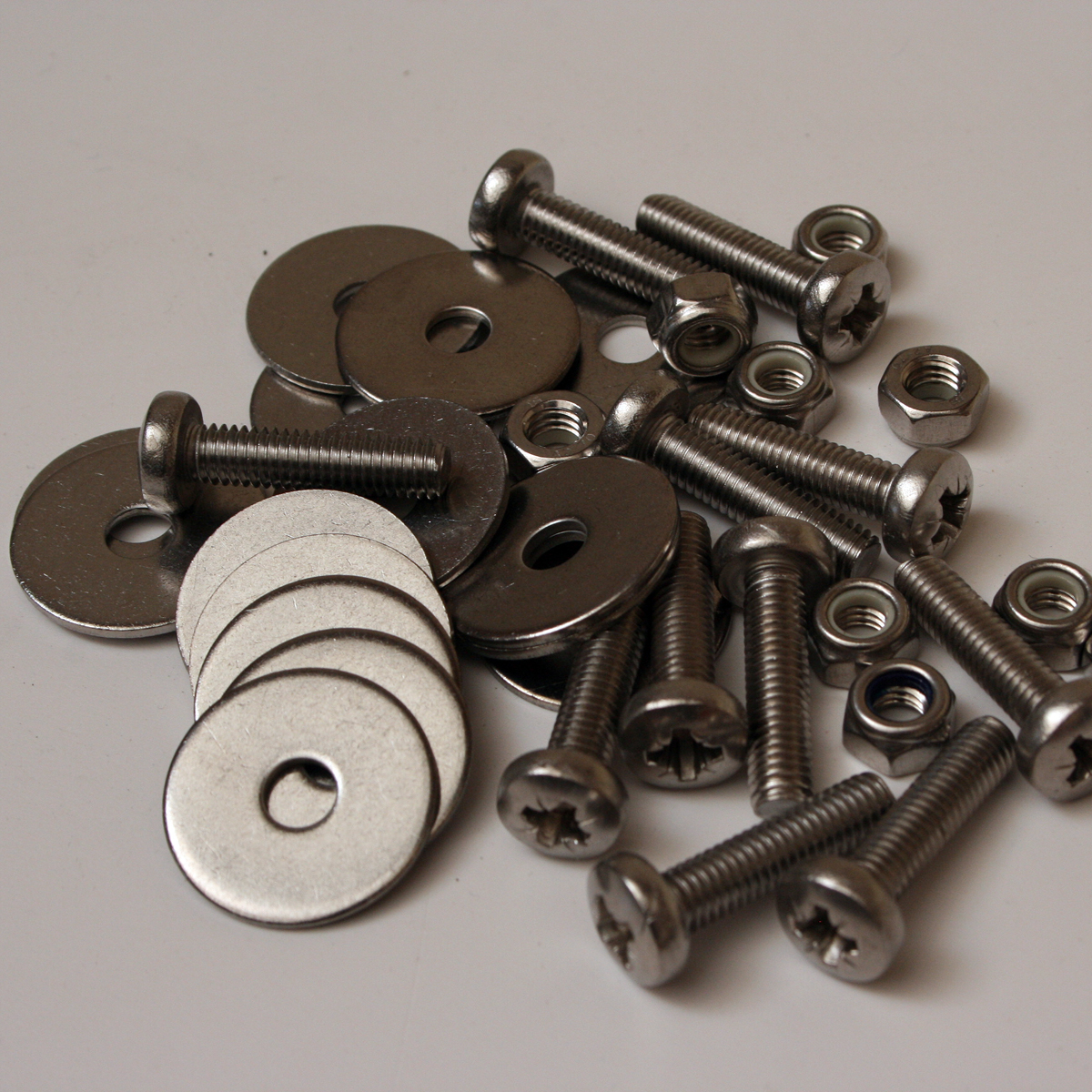Amidst today's fast-changing world, the importance of fastening components, especially nuts and bolts, continues to increase. Such apparently straightforward components are essential in numerous applications, from construction projects to automotive repairs. As technology advances, so too do the innovations surrounding such important fastening solutions. Understanding the various kinds, applications, and materials of bolts and nuts is vital for anyone involved in do-it-yourself tasks, professional construction, or maintenance tasks.
This guide will examine the prospects of fasteners and delve into a comprehensive overview of different kinds of bolts and nuts. We will cover everything from fundamental explanations and uses to the most common types of bolts, their applications, and the latest advancements in substances and finishes. Including perspectives on heavy-duty construction, automotive needs, and specialized fasteners, this exploration will equip you with the knowledge needed to choose the appropriate fastening solution for all task, ensuring both effectiveness and durability.
Types and Functions of Nuts and Bolts
Nuts and bolts are vital components in countless applications, providing support and strength to buildings and machinery. Fasteners can be categorized into several types, such as hexagonal bolts, carriage bolts, and lag bolts, each intended for distinct uses. Hex bolts are flexible and widely used in many projects, while carriage bolts offer a flat head perfect for fastening wooden structures. Lag bolts are especially beneficial for high-strength applications, as their robust threads allow them to grip sturdy materials, making them a popular option in fabrication.
Nuts complement bolts by holding them in place and ensuring a tight fit. Various types of nuts—such as regular nuts, locking nuts, and washer nuts—serve unique purposes. Self-locking nuts are designed to prevent loosening under movement, making them appropriate for automotive applications. Flange nuts have a integrated washer base that spreads the load, avoiding damage to the surface being fastened. Understanding the functions of these various nut types helps in selecting the right piece for a project, guaranteeing reliability and safety.

When selecting nuts and bolts, one must take into account factors like composition, thread specification, and the particular application. Frequent materials include steel, stainless steel, and brass, each offering distinct benefits in terms of strength and resistance to corrosion. The thread type—coarse, fine, or metric—also affects the compatibility and performance of the fasteners. By recognizing the types and functions of nuts and bolts, users can make informed choices that enhance the longevity and effectiveness of their projects.
Materials and Coatings
The choice of materials for nuts and bolts significantly affects their functionality and appropriateness for various uses. Common substances include carbon steel, copper alloy, and titanium. hop over to this web-site is commonly used due to its durability and versatility; however, the specific grade of carbon steel can further determine its characteristics, such as tensile capacity and resistance to corrosion. Brass is frequently selected for uses that need oxidation resistance and excellent conductive properties, while titanium offers exceptional strength-to-weight ratios and resistance to extreme environments, making it ideal for specialized applications.
Coatings also play a crucial role in improving the durability and longevity of fasteners. Zinc plating is a well-liked option for providing oxidation protection, especially in environments where moisture is a concern. Hot-dip galvanization takes this a step further, providing a more robust protective layer that can endure more extreme environments. Additional finishes, including powder finish and anodizing, can also be utilized to increase appearance and provide extra protection against abrasion and oxidation.
Comprehending the interaction between substances and finishes will help you choose the most suitable fasteners for your particular needs. For outdoor projects, think about using oxidation-resistant choices that will resist outdoor conditions. Always evaluate the conditions your fasteners will encounter, as well as any required compromises between strength, weight, and oxidation resistance, to ensure their durable functionality.
Specialty and Unique Fasteners
Specialty and distinct fasteners are engineered to meet particular requirements that conventional nuts and bolts cannot fulfill. For instance, safety fasteners, such as anti-tamper nuts and bolts, are designed to stop unauthorized access or removal. These often feature unique heads or threading that require unique tools for setup and removal, making them ideal for applications where safeguarding is a concern, such as in communal installations or machinery that is highly valuable.
Another category worth noting is nylon locking nuts, which provide improved locking capabilities compared to regular nuts. The nylon component creates friction when the nut is threaded onto the bolt, thereby stopping it from loosening due to vibrations. These fasteners are particularly useful in automotive and machinery applications where movement and vibration can lead to the breakdown of traditional fastening methods. Utilizing nylon lock nuts can significantly improve the durability and reliability of connections in changing environments.
Anchor bolts represent another crucial type of specialty fastener specifically designed for high-strength applications, such as fastening structures to bases. They are commonly used in construction for attaching posts, pillars, and more to cement or masonry. It is important to choose the appropriate anchor bolt type—whether it be physical or adhesive—based on the load requirements and environmental conditions to ensure optimal holding power and building integrity.
